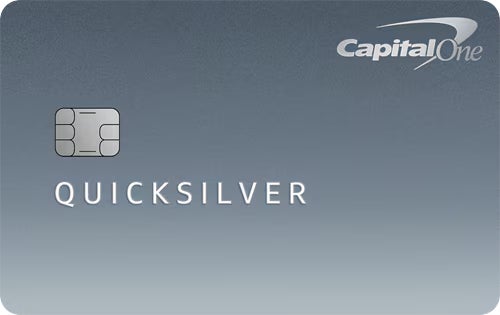How to choose a secured credit card: 7 things to look for

Key takeaways
- Secured credit cards allow you to place a deposit with a credit issuer to access a line of credit — typically equal to your deposit amount.
- Because of the way secured credit cards work, you’re able to build or rebuild your credit, while issuers gain a degree of certainty that granting you credit won’t result in a financial loss.
- Before signing up, take the time to review what to look for in a secured card to find the right fit for you.
A secured credit card can provide you an opportunity to build your credit history from scratch or to repair your credit after it’s taken a hit. With so many secured card options on the market to choose from, it’s easy to get overwhelmed — but you’ve got this. Here’s what to focus on.
Keep in mind: The primary purpose of a secured credit card is to help improve your credit history to the point where you can qualify for better card options. So you don’t necessarily need to focus on the long-term value you can get from the card – though you should still keep the card open even if you no longer use it, especially if it’s your oldest card or highest credit line.
How to choose secured cards: What to look for
Consider each card’s benefits to make sure your efforts actually help build your credit history.
1. Look for a card that reports to all three credit bureaus
In most cases, credit card companies report your account activity, such as your balance and payment history, to the three major credit bureaus: Experian, Equifax and TransUnion. If you get a secured credit card from a major card issuer — the Capital One Platinum Secured Credit Card or Citi® Secured Mastercard®*, for example — this feature is standard.
However, if you’re getting a secured credit card from a lesser-known card issuer, it’s possible your activity will only be reported to one or two of the credit bureaus. The problem with that is that different lenders can pull data from different credit bureaus when making lending decisions.
For example, if you get a secured card with a bank that only reports to Experian, and you apply for a loan with a lender that only checks your Equifax and TransUnion credit reports, it’ll be as if all your hard work never happened.
2. Consider the fees
You can get a secured card with no annual fee, especially from major issuers. If you find one that charges an annual fee, proceed with caution: This could end up costing you down the line.
That’s because your first card is one you want to keep long-term to increase the average age of your overall credit, which is a factor in your credit score. If you close your oldest card, your score could go down — and if your oldest card has an annual fee, you could essentially end up paying just to keep your credit score higher.
Many cards also have interest rates well over 20 percent. This isn’t an issue if you pay your card off each billing cycle, but if you need to carry a balance, a higher interest rate will cost you more. And if a card has any superfluous fees, like a monthly fee, membership fee or processing fee, avoid it altogether. There are better options for you.
3. Make sure your card has a grace period
A credit card grace period is the time between your statement date and your due date. During this time, you won’t pay any interest as long as you pay your statement balance in full.
If a credit card doesn’t offer a grace period — and not all do, surprisingly — your purchases start accruing interest from the date of the transaction. (Certain transaction types, such as cash advances, generally don’t have a grace period on most cards.) With no grace period, a secured credit card can get expensive fast, so this should be a top priority.
Fortunately, most secured credit cards offer a grace period. But still, consider setting up automatic payments to pay the full statement balance by the due date so you don’t accidentally miss a payment and get hit with interest or a late payment fee.
4. Choose a security deposit that fits your budget
With most secured cards, your initial security deposit will determine your credit limit, which can be a stretch for those who are new to credit or looking to rebuild their credit. However, the more you can afford, the better.
That’s because you’ll want to keep your credit utilization ratio (the percentage of your available credit that you’re using at any given time) low. Ideally, you’ll use your card for a few small charges each month, then pay them off.
Keep in mind, if your card offers a path to upgrade to an unsecured (traditional) credit card, you can get your security deposit back.
5. See if you can upgrade to an unsecured card
Historically, you couldn’t get your deposit back on a secured credit card unless you closed your account. But there are a few card issuers willing to upgrade your account to an unsecured card after a period of on-time payments. For example:
- Discover it® Secured Credit Card: Discover begins automatic reviews of your account starting at seven months to see if you can upgrade to an unsecured line of credit and get your deposit back.
- Capital One Quicksilver Secured Cash Rewards Credit Card: Get a credit line review in as little as six months with no additional deposit.
Having a secured card that can be converted to an unsecured credit card is important because it gives you the ability to get your deposit back but keep the account open, even after you’ve outgrown it. Keeping old credit card accounts open can help build your credit by increasing the length of your credit history, especially if you have a track record of on-time payments on the account.
6. Check the eligibility requirements
On the surface, it might seem like secured credit cards should guarantee approval. After all, you’re typically securing the credit line with cash that the card issuer can keep if you default.
But card issuers may still deny your application if your income or credit history doesn’t meet their requirements, including:
- Having charged-off accounts on your credit report.
- A high existing debt balance, which might make lenders wary of extending you new credit.
- Bankruptcy that hasn’t been discharged. Some card issuers may even have a waiting period after the discharge date.
As you compare your options, check to see if each card issuer has a preapproval process that can give you an idea of your approval odds without a hard credit check (which can temporarily lower your credit score).
If your credit situation is in dire straits, the opensky® Secured Visa® Credit Card could be a solid option because it doesn’t require a credit check to apply. However, the card comes with a $35 annual fee, so it may not be the best choice if you can qualify for other cards.
7. Look at the card’s benefits and rewards
The primary purpose of a secured credit card is to build or rebuild credit, but it doesn’t hurt if the card you’re using also offers rewards and perks along the way.
For example, the  offers 1.5 percent cash back on every purchase you make, a rate that rivals some of the best cash back credit cards on the market. What’s more, the card has no annual fee and gives you the chance to get your deposit back with responsible card use, without closing the account.
offers 1.5 percent cash back on every purchase you make, a rate that rivals some of the best cash back credit cards on the market. What’s more, the card has no annual fee and gives you the chance to get your deposit back with responsible card use, without closing the account.
Similarly, the no-annual-fee Discover it® Secured Credit Card offers 2 percent cash back on up to $1,000 spent in combined purchases quarterly at gas stations and restaurants (then 1 percent), as well as unlimited 1 percent back on all other eligible purchases. Additionally, Discover will automatically match all the cash back you’ve earned at the end of your first year.
How to get a secured credit card
Here are the steps to take to open a secured card:
- Choose the card you want.
- Have your security deposit ready, which you will provide at the time of application.
- Complete a preapproval if available. If not, apply for the card you want.
- If approved, receive your new card, and use it responsibly to build your credit score.
- It typically takes a few months for your credit score to start responding to your positive payment history.
The bottom line
If you’re looking for a secured credit card to build or rebuild your credit history, avoid the urge to accept the first offer you see. Instead, take your time to research your options and compare card features to determine the right fit for you.
While you likely won’t use your secured credit card forever, a good one can make your life a little easier and even offer added value while you work to build your credit.
*Information about the Citi® Secured Mastercard® has been collected independently by Bankrate. The card details have not been reviewed or approved by the card issuer.
Why we ask for feedback Your feedback helps us improve our content and services. It takes less than a minute to complete.
Your responses are anonymous and will only be used for improving our website.







